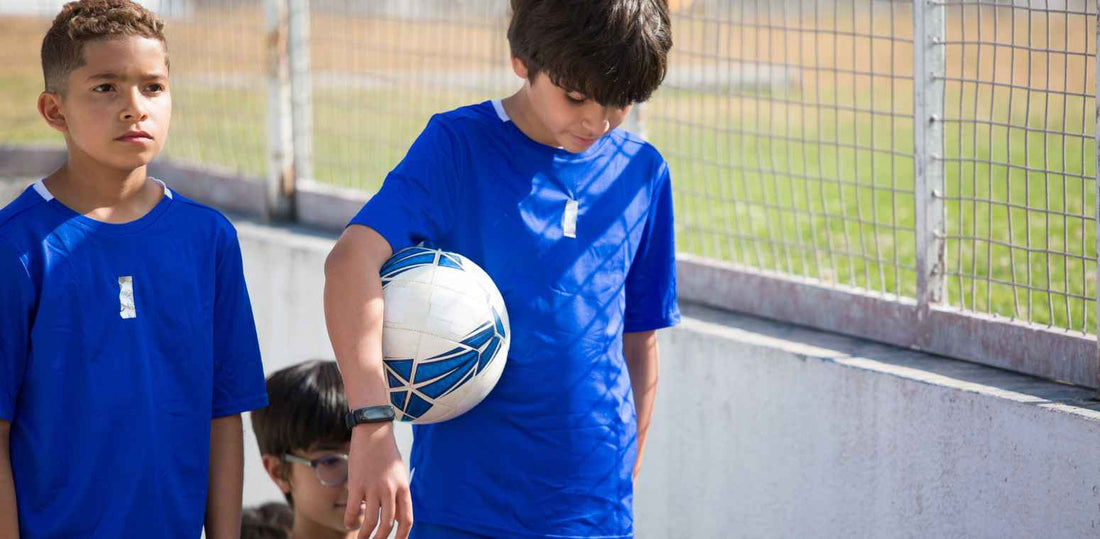
Top Coaching Tips for Grassroots Football: How to Inspire, Develop and Lead Your Team
Share
What have you heard about coaching grassroots football that made you interested in it? You probably heard it’s rewarding, right? That’s absolutely true. Coaching grassroots football is a fulfilling experience. It’s not just about winning matches—it’s also about helping young players grow and learn throughout the process. This article will tell you more about coaching at the grassroots level. Let’s get started:
What Makes a Great Grassroots Football Coach
What makes a great grassroots football coach? Let’s look at some key qualities:
Passion for the Game: A genuine passion for football is essential. A coach who loves the game will enjoy coaching it—and that passion will inspire players to enjoy it too.
Patience: When a coach is patient, young players benefit. Players who are still learning gain the most from a coach who understands that mistakes are part of learning and doesn’t judge them harshly.
Knowledge of the Game: A good coach has solid knowledge of the rules, techniques, and strategies of football. This knowledge allows them to teach players effectively.
Ability to Inspire: Great coaches know how to motivate players to do their best. Encouraging words and support can help players believe in themselves and work harder.
Good Communication Skills: Communication is key. A great coach can explain things clearly and listens to players as well. Being able to communicate in a way young players understand makes a big difference.
Flexibility: Every player is different, and a good coach recognises that. Being flexible helps coaches adapt to meet each player’s needs.
Focus on Fun: Football should be enjoyable. Great coaches create a fun and welcoming environment so that players look forward to training and matches.
Planning Your Sessions for Long-Term Player Development
Is planning important for effective coaching? Absolutely. Here are some tips for planning your training sessions:
1. Set Clear Goals: Decide what you want to achieve in each session. Your goals could focus on improving certain skills or building better teamwork.
2. Focus on Skill Development: Sessions should include activities that help players improve their individual skills.
3. Include Game-Like Situations: Use small-sided games in your sessions. These help players practise their skills in real match conditions.
4. Balance Fun and Learning: Sessions should be enjoyable and educational. Use challenges and games to keep players engaged while they develop.
5. Review and Adjust: After each session, think about what worked well and what didn’t. Then adjust your future plans based on what your players need.
6. Long-Term Development: Remember that improvement takes time. Focus on steady growth rather than instant results.
Communication That Builds Confidence and Respect
Can a team succeed without good communication? Not really. Effective communication is essential for building a strong team. Here’s how to do it:
Be Positive: Use encouraging language. Praise every effort your players make, no matter how small. Positive feedback boosts their confidence.
Listen to Your Players: Pay attention to what your players have to say. Understanding their thoughts and feelings shows that you respect them and care about their opinions.
Give Clear Instructions: When explaining drills or tactics, keep your language simple and direct. Demonstrate where needed. This gives players confidence in your training.
Provide Constructive Feedback: Feedback should always be helpful and specific. Focus on what players did well, and offer clear suggestions for improvement.
Create an Open Environment: Encourage your players to ask questions and share their thoughts. This builds trust and helps them feel comfortable expressing themselves.
Be Approachable: Make sure players feel they can talk to you about any concerns. Being friendly and approachable strengthens your relationship with the team.
How to Build a Team Without Sacrificing Individual Growth
1. Encourage Teamwork: Teamwork helps players build strong relationships. While encouraging team play, don’t forget to support individual growth as well.
2. Recognise Individual Strengths: Every player has different strengths. Identifying these allows you to help each player grow in their own way—and use their strengths within the team.
3. Set Individual Goals: Encourage each player to set personal goals. This gives them something to aim for and supports their individual progress.
4. Provide Opportunities for Leadership: Give players chances to lead in training or during games. This builds their confidence and sense of responsibility.
5. Balance Playing Time: Make sure all players get a chance to participate. This ensures everyone feels included and supports their development without sidelining team goals.
Why Losing Can Be a Coaching Win
Sport is not just about winning—it’s about learning through both success and failure. Losing can be a valuable experience:
Learning Opportunities: Would you rather win and learn nothing, or lose and become stronger? Losses teach resilience, teamwork, and sportsmanship. Use defeats as a chance to reflect on what went wrong and how to improve.
Building Character: Experiencing loss helps build stronger character. Players learn how to cope with disappointment and develop determination for future matches.
Focus on Improvement: Losses shift the focus to development. Players become more aware of their mistakes and work harder to improve.
Strengthening Team Bonds: Going through tough times—like a series of losses—can actually bring teams closer together. Players learn to support one another and build stronger bonds.
Encouraging a Growth Mindset: Use losses as a way to teach players about growth and focus. Help them stay motivated and develop a healthy mindset.
Celebrating Effort: Always recognise the effort players put in, even in defeat. Avoid blame, and instead focus on their hard work. This helps maintain team morale.
Conclusion
As you’ve seen, coaching grassroots football is about far more than just winning matches. It’s about keeping young players inspired, motivated, and growing. As a coach, your influence truly matters. You can make a lasting impact by supporting their development and helping them become better players and individuals. Wouldn’t you agree?
